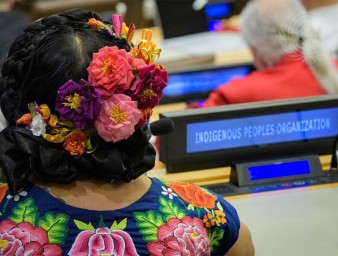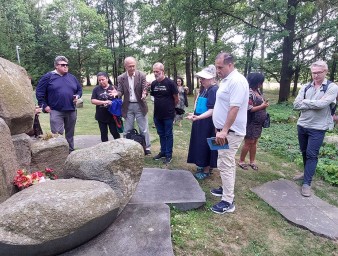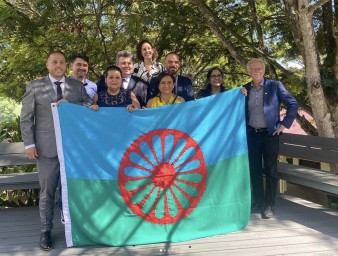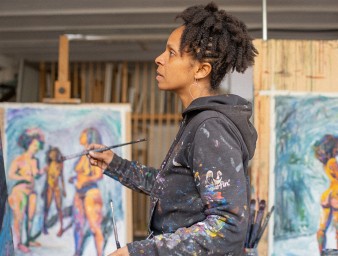Voices from the Field, Belarus: Defending the rights of the vulnerable in the face of the pandemic
19 June 2020
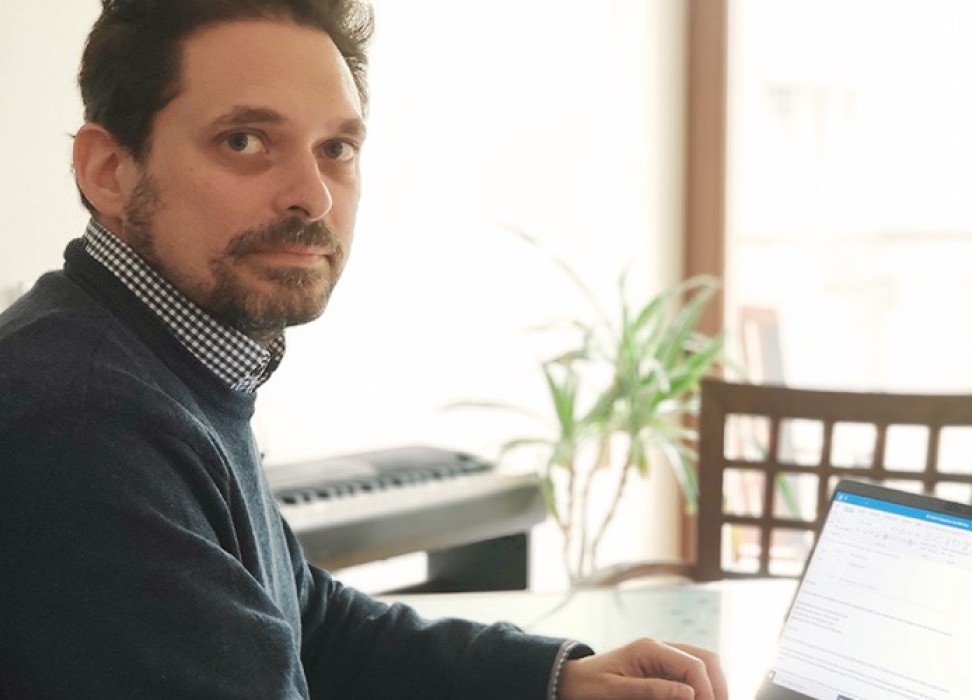
Despite recording 54,680 cases of COVID-19 at the time of writing, Belarus has adopted few measures in terms of physical distancing to respond to the pandemic. So far, 312 people have died (source: World Health Organization).
UN Human Rights is focusing particularly on the human rights of vulnerable groups, such as people in detention and people with disabilities.
Omer Fisher is the Senior Human Rights Adviser for UN Human Rights in Belarus.
In the face of the pandemic, what are the main human rights issues at stake in Belarus?
Belarus is quite unique in Europe in the sense that there has been no lockdown or nation-wide quarantine. The Government has adopted very limited physical distancing measures to respond to the outbreak. In a number of respects, life goes on as usual, schools, shopping centres, restaurants and cafes as well entertainment and recreation centres are working. That said, for some time we saw, at least in Minsk, less movement on the streets and in public places. Some companies and organisations, including the United Nations, took early measures for staff to work from home.
The number of infections is high standing at 800 new cases a day.
The question is how effective the State's actions are in combating the outbreak. The concern is also about risk communication by the Government, but also allowing the voices of civil society and of the most vulnerable groups to be heard, to make sure that their needs are met, and that nobody is left behind.
These vulnerable groups include the medics, but of course also the elderly, persons in closed institutions and also people deprived of their liberty, or people in detention. Overcrowded prisons are unfortunately an ideal place for COVID-19 to spread. We are also concerned about people with disabilities, many of whom are living in residential care institutions. They've had their contact with the outside world significantly reduced, creating a major impact on mental health, and as we've seen in other countries, people in these institutions are at a very heightened risk of infection.
What is UN Human Rights doing to protect the rights of the people in Belarus?
We're focusing our work on the above-mentioned vulnerable groups. In addition to the recommendations we produced tailored to the Belarusian context on how to address the pandemic, we're now going more in-depth on certain issues. We are providing policy advice to the Ministry of Interior about people in detention.
To ensure the rights of people with disabilities are protected, we're working with the Ministry of Labour and Social Protection to share with them best practices, recommendations and lessons from other countries which already have - unfortunately often painful - experience to share.
An important part of our work is to be in touch with local communities and to work with NGOs, particularly to assess the impact of the outbreak on vulnerable groups.
Our overall goal is to ensure the response to the pandemic has human rights at its centre. We're working with the UN Resident Coordinator and all UN agencies in the country – as well as with the authorities and the communities - to make this happen.
How has COVID-19 affected your work? What are the biggest challenges?
At a very practical level, our planned workshops, training sessions, or conferences have had to be rethought. We've had to adapt and make use of the tools available to be able to deliver this very important part of our work online. Additionally, the actual content of our work has changed. Our focus now is the immediate human rights needs arising from the pandemic, something that of course was not really on our radar screen prior to the outbreak.
These are unforeseen circumstances that are changing every day. We have to be very quick to respond. We have to be flexible.
In terms of lessons learned, I think we'll be able to articulate these more in the coming weeks and months. It is still very early. However, one thing that is evident is that fighting discrimination, leaving no one behind, is central to the effectiveness of the response. Protecting everyone's right to health is crucial.
Why is it important to stand up for human rights during this pandemic?
There is often a misconception that human rights are an obstacle and an impediment to the effective reaction to an emergency situation, like the pandemic we are seeing now. I think it's exactly the opposite. A response with human rights at its centre, engaging all segments of society – including leaders from sub-national authorities, religious groups, community organisations, professional bodies, the media, schools, universities and beyond, as well as figures from the world of sport and entertainment is a great opportunity to galvanise links between people and between the population and the authorities.
When there is free flow of information, and transparency about what is being done, this helps to combat the spread of the virus.
Nobody should be left behind, nobody should be discriminated against. This is a moral and legal obligation. But it's also very much the smart thing to do in the context of a pandemic. You cannot hope to effectively limit the spread of an infection if you leave entire parts of the population out of the effort.
Listen to Omer discuss more about his work in Belarus in the video below
19 June 2020
